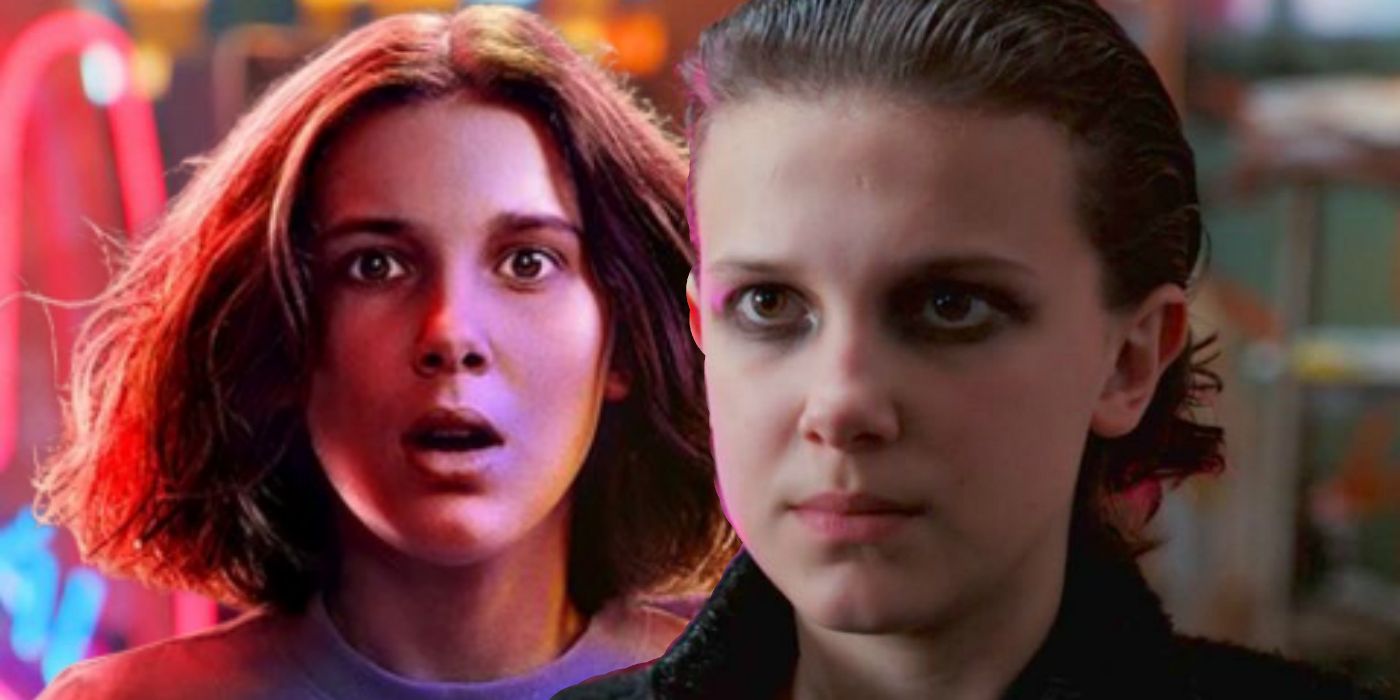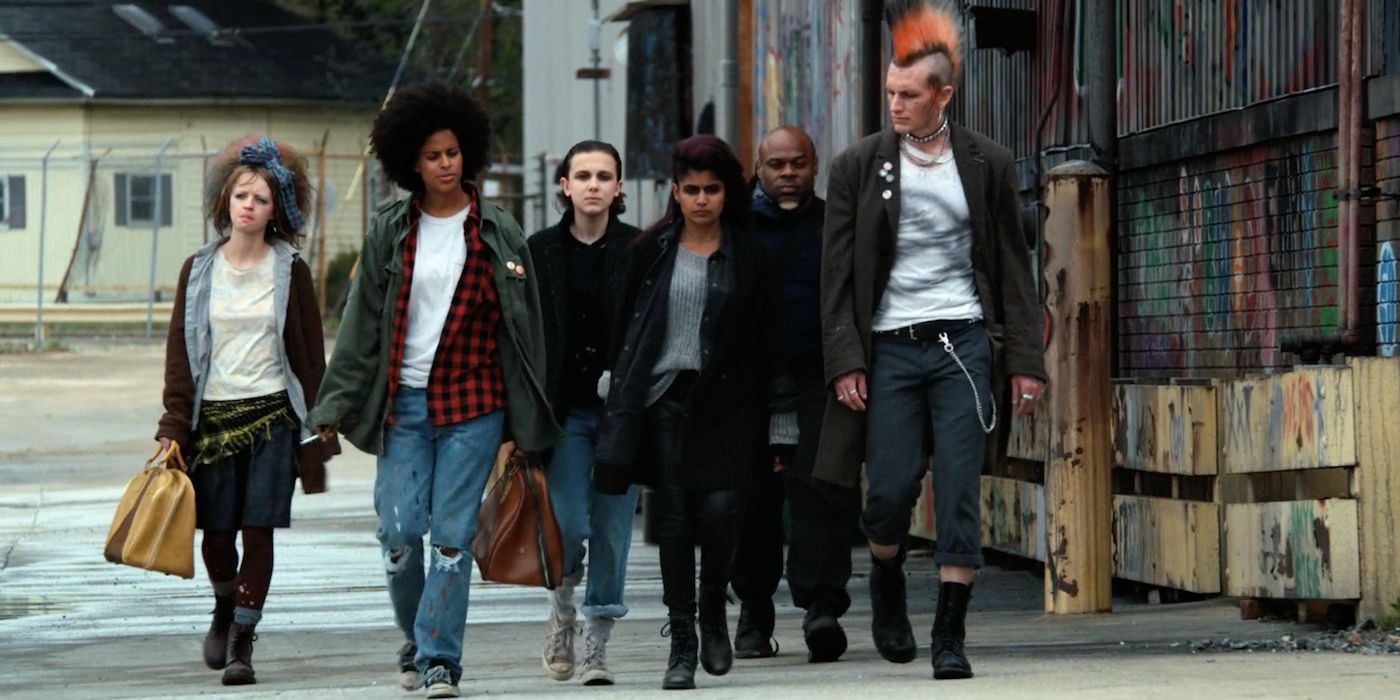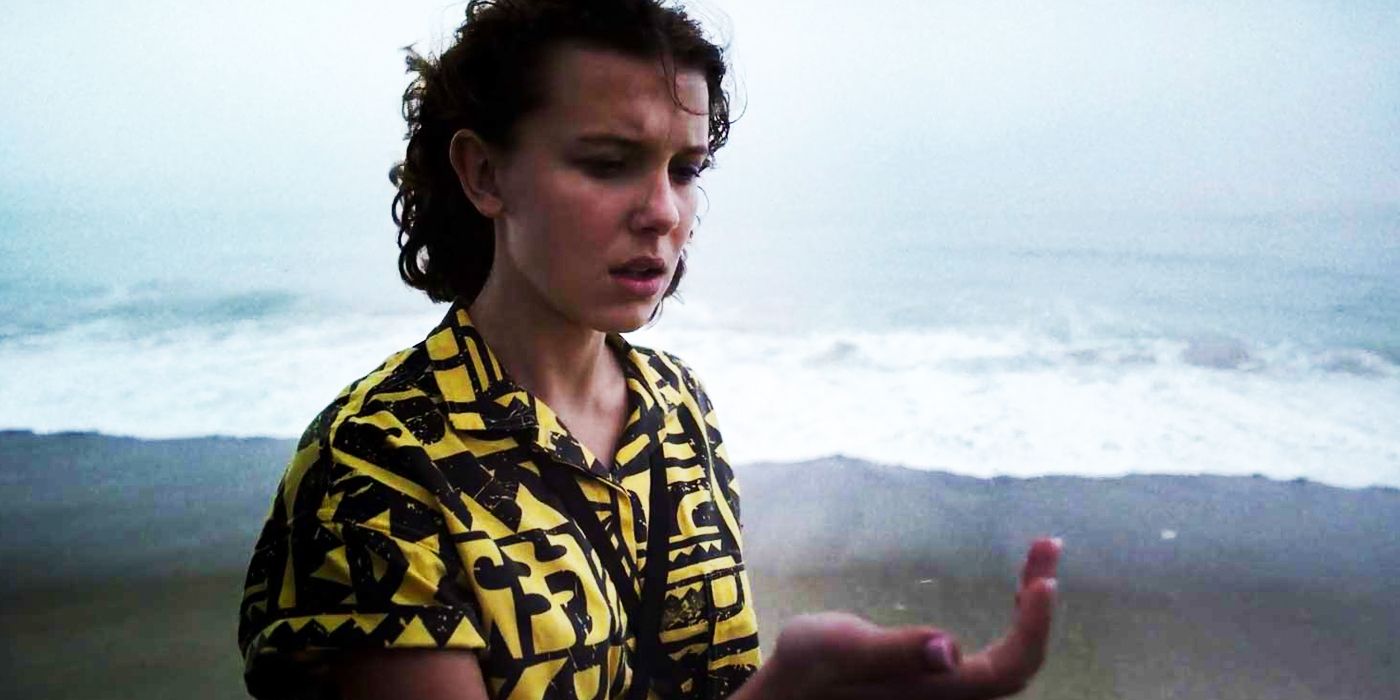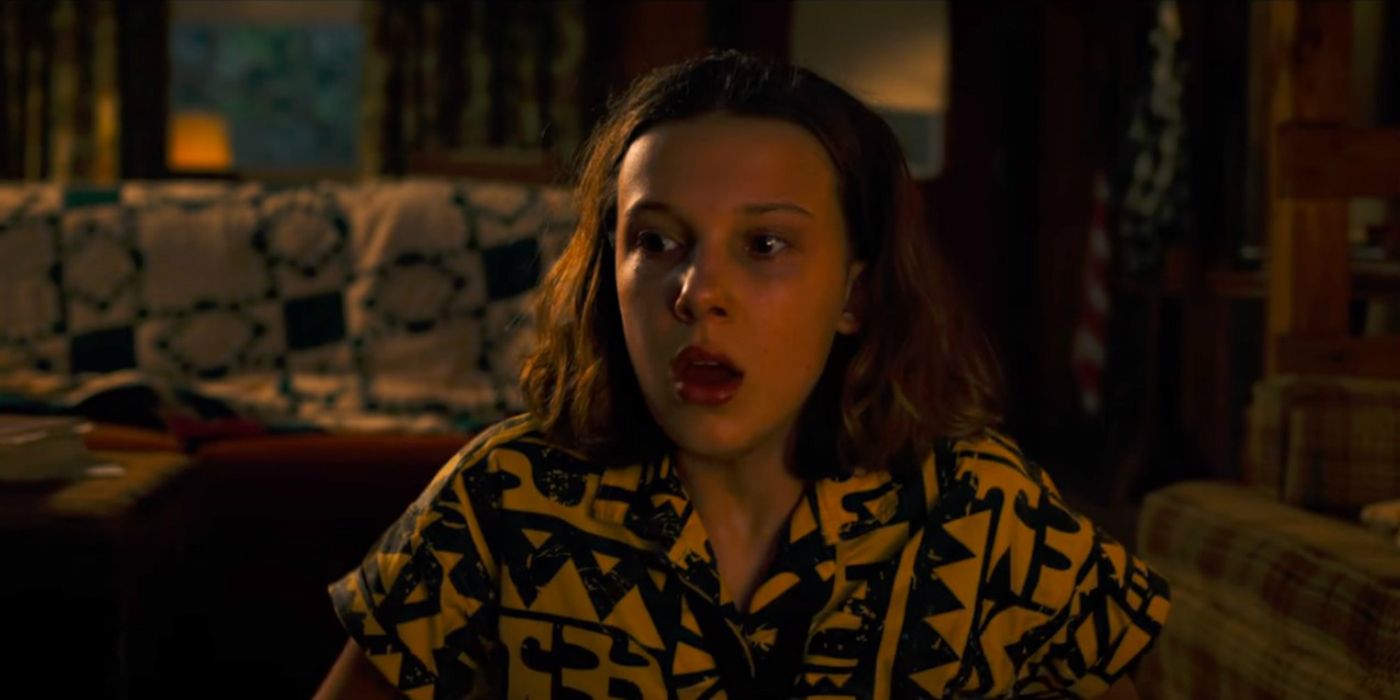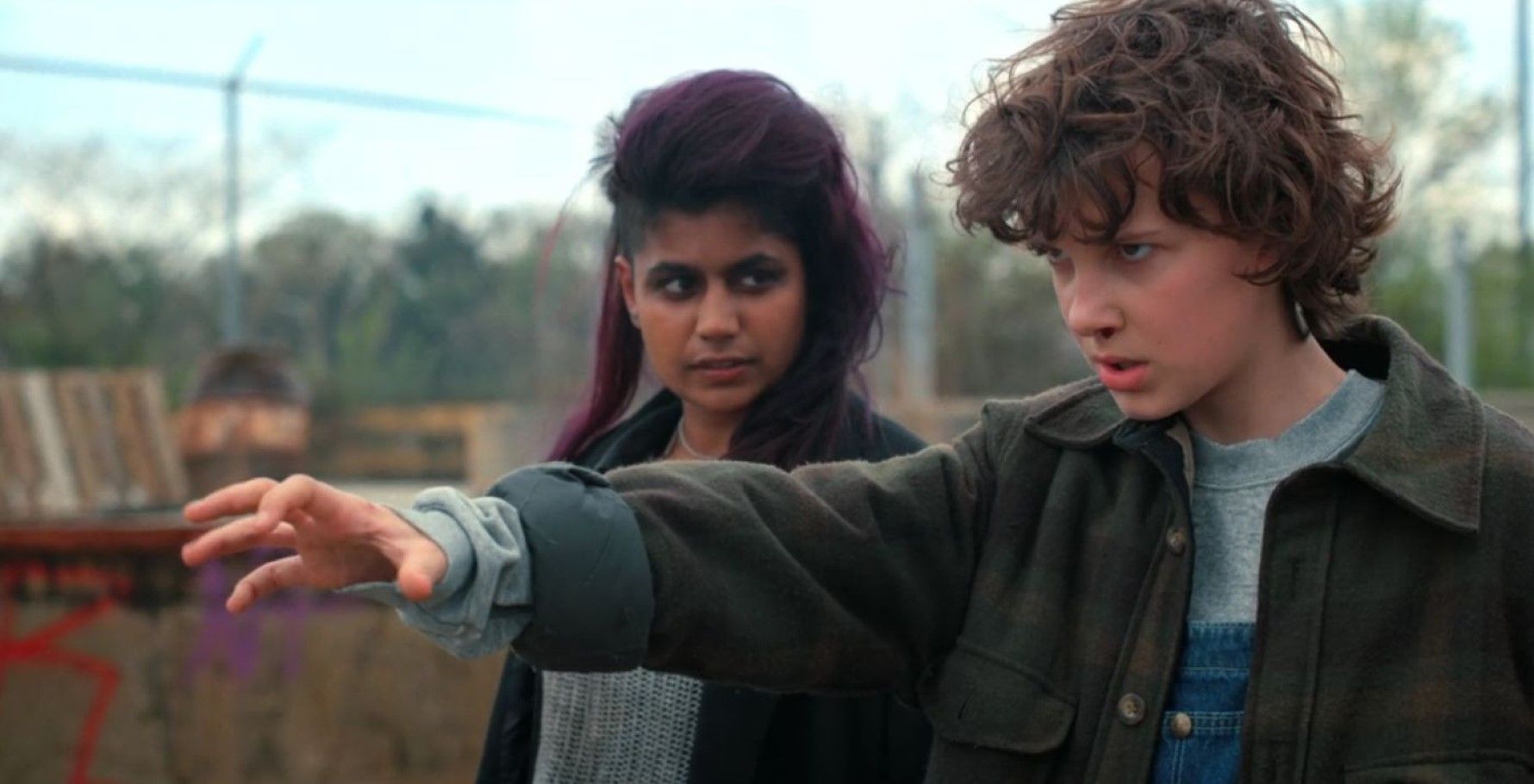Warning! Major spoilers ahead for Stranger Things season 3.
Stranger Things season 2's "The Lost Sister" proved highly controversial for the Netflix series, but it takes the wrong lessons from the backlash in season 3. Stranger Things has largely been praised by fans and critics alike since it debuted on Netflix back in 2016, but with one notable exception: season 2 episode 7.
Stranger Things is predominantly the story of Eleven, a young girl with incredible powers who is linked to the Upside Down. Much of the first two seasons were about her relationships with the other characters, alongside the development of her abilities, integrating herself into society, and exploring hints of her past. In season 3, we get most of that again but the latter is missing, and that's because of the episode "The Lost Sister."
This was a huge pivot for Stranger Things, and was unpopular with the majority of its fans. However, looking at how season 3 responds - or doesn't - to this, it becomes clear that Stranger Things learned the wrong lessons from the episode, which feeds into the biggest problems with season 3 and the show as a whole.
Why Stranger Things Season 2's 7th Episode Was Controversial
Stranger Things season 2 was mostly a success. In true sequel fashion, it expanded the scope of the world, further developed the characters and their relationships, and gave them new, more difficult challenges to face. At the same time, however, it was very recognizable to fans of season 1: it had the exact same tone, visual style, score, and 80s references. The exception was episode 7, "The Lost Sister."
This episode fully introduces us to another of the test subjects from the same facility as Eleven, Kali a.k.a. Eight, and the rest of her gang of outcasts. Eleven leaves Hawkins behind to find Kali in Chicago, and she learns how to embrace her anger in order to further advance her powers, which leads them to setting off to enact revenge on the people at Hawkins Lab. Although it does connect up with the rest of Stranger Things season 2 by leading into El's return at the end, "The Lost Sister" is mostly a standalone installment.
That is part of the reason it was so disliked. Coming in the final third of the season, it was a bizarre turn away from the main plot, which was an unwelcome deviation at the time given the momentum was really starting to build. Because Stranger Things is structured so much like a movie rather than a TV show, it completely broke the flow at its most crucial point. But it was also tonally at odds with the rest of the show. The group of punks Eleven runs around with are nothing like the kids we've grown to know and love back in Hawkins, and their minor misdemeanors have a certain faux-edge that again clashes with the rest of Stranger Things, and on top of all that, it's just not a great episode. All of that added up to provide an episode viewers strongly disliked - it's the lowest-rated on IMDb by a considerable margin, for example - and that backlash is felt in season 3.
How Stranger Things Season 3 Avoids This Controversy
Stranger Things creators Matt and Ross Duffer were very much aware of the controversy around "The Lost Sister", and although they defended the episode at the time, the response can be felt in their approach to season 3. In fact, it was clear long before the season aired, because season 3 was a return to the eight-episode format of season 1, rather than season 2's nine installments. That suggested they were backtracking, and season 3 confirms it.
The new episodes of Stranger Things don't attempt to directly fix the controversy. They don't give us more of Kali's story in a different way, or further flesh out that side of Eleven, or introduce another test subject from the same facility, or anything to build upon season 2 episode 7. Instead, they completely ignore it.
There's no mention of Kali in Stranger Things season 3. There's no discussion of how Eleven returned to Hawkins so much more powerful than before, or of the other subjects, or any of the story introduced in"The Lost Sister." We even see Eleven go shopping and trying to figure out her own style, as if her makeover in season 2 episode 7 had never happened. That's essentially Stranger Things' entire approach to it in season 3: it basically doesn't exist.
Ignoring This Makes Stranger Things Season 3 Worse
Given the general derision that "The Lost Sister" was met with, it's easy to see why the Duffer Bros. simply decide to ignore it in Stranger Things season 3, and there'll be plenty of viewers who are happy that Kali and the gang aren't so much as mentioned. However, by pretending season 2 episode 7 never happened and reverting to the status quo, Stranger Things season 3 is actually worse.
Although season 3 contains plenty of strong moments with characters we've come to care about, it's also very much just another go-around of season 2. With the exception of missing out the standalone episode, the new season of Stranger Things is structured in the same way, and it hits all of the same plot beats. It keeps the familiar character dynamics for the most part too, and despite some fun additions - Robin is a great foil for Steve and Dustin; Eleven and Max work really well together - it doesn't take any risks.
That's why it feels like Stranger Things has plateaued in season 3. Because it tried and failed to mix things up once, it's scared to do so again. That means season 3 plays things very safe and doubles down on the sense of familiarity. That reluctance to change hinders any significant character or story developments, and while Stranger Things season 3 isn't bad, it is weaker for it.
What Stranger Things Should've Done Instead
Rather than simply ignoring "The Lost Sister" and reverting back to the status quo, Stranger Things should've instead taken a closer look at the issues with the episode, while also figuring out a way to do something similar in the future. That's because the problem isn't with the idea, but rather the execution and its placement in season 2.
Stranger Things season 3 should've continued to build upon this side of its mythology, it just could've done it in other ways. It's likely that a full standalone centered around Kali wouldn't have worked, given the response in season 2, but they could've dedicated sections of other episodes towards it. If you take that storyline and spread it across multiple episodes, which means not detracting so much time away from the core characters at a key point in the season, then it'd feel like a more organic part of the show. If they brought Kali, or another of the subjects, to Hawkins rather than having them exist in their own bubble, it'd lead to far more cohesive storytelling without trading on an exciting new element.
Moving forward, this is something Stranger Things season 4 should be looking to do, because otherwise it's a major plot thread that is just left hanging. Stranger Things needs to be more confident and less risk-averse if it's going to reach its full potential, and the other test subjects are a means of doing that. With Eleven losing her powers in season 3, then it has a great reason to bring in more people like her before she gets them back. That gives it a better way of better integrating them into its story, and if it can then use it as a means of world-building, character development, and plot progression, which they should be able to, then Stranger Things can learn the right lessons from its biggest controversy, and become a much better TV show as a result.

